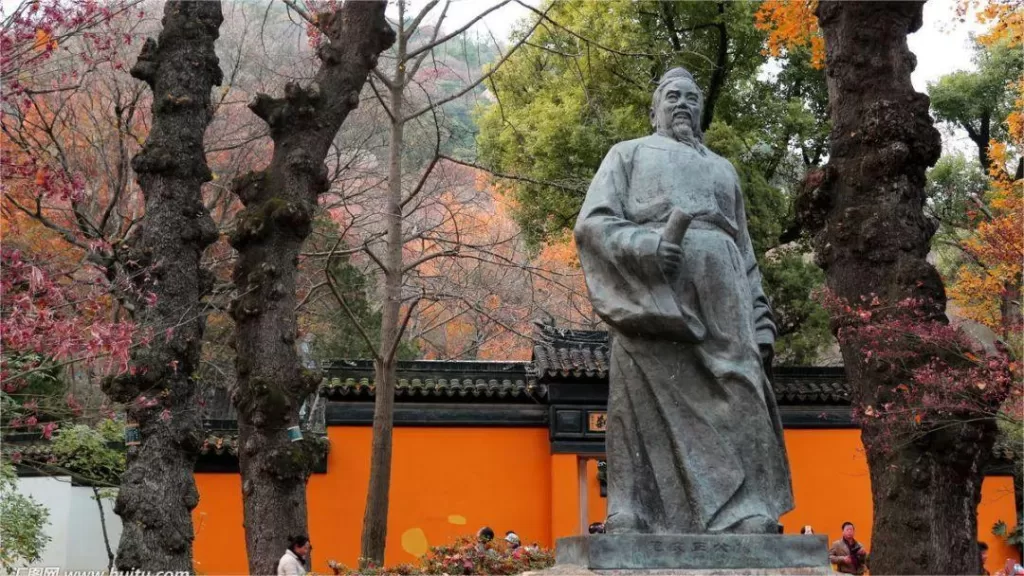Fan Zhongyan (范仲淹) (October 1, 989 – June 19, 1052), courtesy name Xiwen, was a prominent political figure and literary scholar during the Northern Song Dynasty in China. Born in Binxian, Fan later moved to Wuxian in Suzhou, Jiangsu. His early life was marked by the loss of his father, and his mother, Lady Xie, remarried into the Zhu family, prompting him to change his name to Zhu Shuo.
In 1015, Fan Zhongyan achieved success in the imperial examinations, earning the prestigious position of Guangde Army’s Assistant Military Inspector. His subsequent career saw him hold various roles, including county magistrate in Xinghua, supervisor in the Privy Council, circuit intendant in Chenzhou, governor of Suzhou, and acting governor of Kaifeng, among others. However, his commitment to speaking truthfully and acting with integrity often resulted in his repeated demotions.
During the Song-Xia War that erupted in 1040, Fan Zhongyan, along with Han Qi, was appointed as the Vice Military Commissioner for Shaanxi, responsible for consolidating the northwest border’s defense through a policy of “military farming and prolonged defense.” This strategy helped stabilize the situation and played a role in promoting peace talks between the Song and Xia dynasties. Once the northwest border situation improved, Fan was summoned back to the capital by Emperor Renzong and appointed as the Deputy Chief of the Secretariat. Subsequently, he became the Censor-in-Chief and initiated the “Qingli New Policies,” a reform movement aimed at improving governance.
Although the New Policies faced setbacks and opposition, Fan Zhongyan persisted, and after some time, he requested to leave the capital. He went on to serve as the governor of Binzhou, Dengzhou, Hangzhou, and Qingzhou. In 1052, while en route to assume his new position as the governor of Yingzhou, Fan Zhongyan passed away at the age of sixty-four. Emperor Renzong personally inscribed his tombstone with the title “Praise of the Virtuous.” Posthumously, Fan Zhongyan received honors such as Grand Preceptor, concurrently holding the positions of Chief of the Imperial Secretariat and Prefect of the Grand Scribe. He was also bestowed the title of Duke of Wei. His posthumous name was “Wenzheng,” and he became widely known as “Fan Wenzhengong.”
Fan Zhongyan was a versatile figure, excelling in both literary and military endeavors. His strategic acumen and exceptional leadership were evident whether he was involved in political affairs or military campaigns on the border, demonstrating his pivotal role in the nation’s stability and the expectations placed upon him during his time. The Qingli Reforms led by Fan Zhongyan, while lasting only a year, set the tone for the reformist spirit of the Northern Song Dynasty, serving as a precursor to Wang Anshi’s “Xining Reform.” Additionally, Fan’s literary achievements were notable, and his advocacy of the philosophy “Worry for the world’s troubles before enjoying its pleasures” and his embodiment of benevolence and integrity left a profound and enduring impact on later generations.

